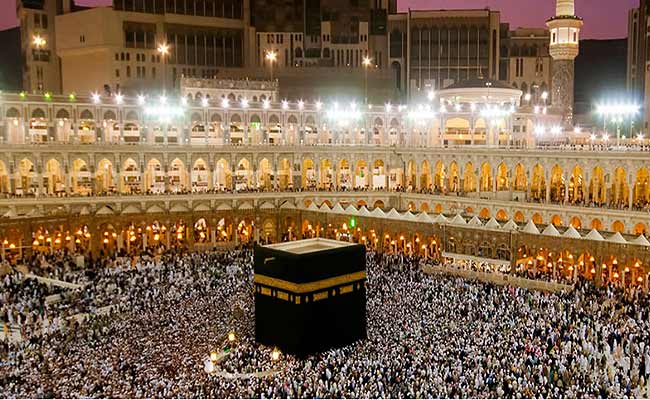The Union Minister for Minority Affairs has abolished the discretionary Haj quota for pilgrims, in line with the Prime Minister’s determination to put an end to VIP culture in the country.

The Haj Pilgrimage
- The holy Haj is an annual Islamic pilgrimage to Mecca, Saudi Arabia, Muslims’ holiest city.
- It is regarded as a religious obligation for all adult Muslims who are physically and financially capable of performing it.
- The pilgrimage rites are carried out over five to six days in Dhu al-Hijjah, the last month of the Islamic calendar.
How is it managed?
- For the Kingdom of Saudi Arabia, the pilgrimage poses a massive logistical challenge.
- To say the least, housing, feeding, and facilitating safe pilgrimages for millions of pilgrims who descend on Mecca from all over the world in a short period of time is difficult.
- Thus, Saudi Arabia assigns quotas to each country, determining the total number of pilgrims who can travel from that country.
- These quotas are generally distributed based on the number of Muslims in a country. However, quotas are also significant diplomatic issues.
- Countries lobby Saudi Arabia for more slots every year. After a brief hiatus due to Covid-19, the pilgrimage will resume in full force in 2023.
How does India handle this?
- India and Saudi Arabia signed a bilateral agreement for Haj 2023.
- According to the agreement, a total of 1,75,025 Indian Haj pilgrims, the highest number in history, will be able to perform Haj.
- The quota allotted to India is then distributed to various stakeholders by the Ministry of Minority Affairs and the Haj Committee of India (HCoI).
- According to the 2018-22 policy document, the HCoI receives 70% of India’s total quota, while private operators receive 30%.
Distribution of Quotas
- Out of the total number of HCoI slots, 500 are held under the Government’s discretionary quota, with the remainder distributed to different states based on their Muslim population.
- If the number of applicants exceeds the number of available slots, a lottery is held in each state to determine who will travel.
What are the discretionary quotas for Haj?
- The “Government discretionary quota” is further divided into two parts: 200 seats are reserved for the Haj Committee and 300 for people holding important positions at the Centre. These are some examples:
- 100 with the President
- 75 with the Prime Minister
- 75 with the Vice President
- 50 with the Minister of Minority Affairs
- According to the previous policy, these seats could be assigned to people who applied for the pilgrimage through normal channels but were denied a spot.
- This quota has now been eliminated, and these seats have been returned to the general pool.
Source: https://indianexpress.com/article/explained/explained-politics/centre-ends-discretionary-haj-quota-what-was-this-quota-and-how-does-it-work-8377981/#:~:text=What%20are%20the%20hajj%20discretionary,100%20with%20the%20President
